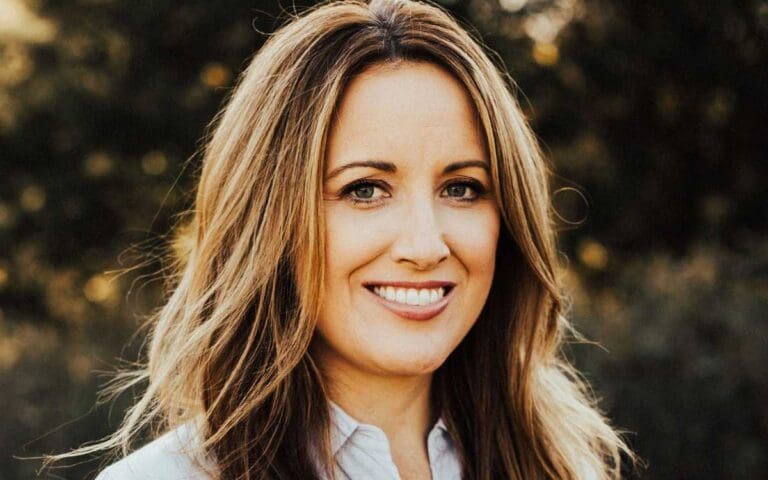Julie May is vice president and general manager of B2B Scores at FICO.
In this role, she is responsible for global product and business development, delivery, and support for the FICO Score, the standard measure for consumer credit risk in the US, and a leading credit score in some 40 countries. Over the course of her career, she has held senior roles in customer relationship management, business consulting, and strategic product management, development, and delivery. Her expertise spans enterprise software, advanced analytics, fraud management, cybersecurity, go-to-market strategy and strategic partnership development.
How did you land your current role? Was it planned?
Though my current role wasn’t specifically a planned move, I have spent 19 years of my career history across two different work stints in various roles at FICO. Many years ago, I received some good advice from one of FICO’s executive team members. The advice was that at a certain point (or many points) in a career, people will hit a fork/forks in the road where they need to decide if they want to keep their career path on a track to become a deep specialist in a specific domain (which can be more limiting as it relates to potential future opportunities), or if they want to focus on accepting roles that take them outside of their domain or expertise area to gain more general knowledge. This mentor understood that I was looking to eventually be in an executive leadership function.
I consider this advice the specialist/generalist conundrum. After receiving that advice, I elected to explore opportunities outside my area of expertise (which at the time was fraud management – and specifically building financial fraud management software). Seeking opportunities led me to a role leading FICO’s Cyber Risk Scoring business unit, which I had the opportunity to do for multiple years. The process of running all aspects of that business (development, product management, sales, etc.), prepared me for the role I have now managing the FICO Scores business.
What are the key roles in your field of work, and why did you choose your current expertise?
In my role, I am responsible for profit and loss management, strategic planning and daily operations. My team includes software developers, quality assurance, software architects, product managers, product operation personnel, client managers and partner development team members.
As my career evolved from sales to business consulting, to product management, I realized that I am most interested in strategic product development and management. Leading the end-to-end team responsible for delivering to the long-term strategy was a natural evolution from the day-to-day role of product management.
Did you (or do you) have a role model in tech or business in general?
I’ve had many role models over the course of my career in technology and business. My biggest role model in business is my father, who co-owned a stake in a business. He always told me to be honest, operate with integrity, focus on the customer, and hire good people. At the end of the day, these are my guiding principles in software, just as they were my fathers in his HVAC business.
You're invited! Join SheCanCode's Women in Tech Community
Find a supportive network, opportunities, jobs & much more, so you can excel in your tech career.
What are you most proud of in your career, so far?
I’m proud of the focus on innovation that I’ve helped lead in advanced intelligence and analytics to solve a multitude of problems – from adaptive analytics to collaborative profiling. Teams I’ve helped manage and lead have brought a lot of cutting-edge things to market to solve very real industry problems, whether that be fraud management or risk.
What does an average workday look like for you?
I don’t know that I would say there is any average work day, but a great day for me would include discussions with customers and partners to progress business initiatives or receive feedback on how we are performing or what we are planning to do next, multiple planning meetings for product deliveries, and meetings with various members of my team to discuss budget allocation, performance to plan, strategic planning initiatives, or marketing programs.
Are there any specific skills or traits that you notice companies look for when you’re searching for roles in your field?
Curiosity and energy. I believe good people can be taught and coached any skill, so long as they have the right attitude and passion. Of course, for certain roles, there is a required technical skill set, or mathematical skill set (in analytic science), but barring those minimum technical skill sets, I don’t think there is a substitute for curiosity, energy, and passion. You can’t teach someone to care, but you can teach them to code!
Has anyone ever tried to stop you from learning and developing in your professional life, or have you found the tech sector supportive?
I’ve been fortunate in that the vast majority of my experiences have been positive in tech. That said, I’ve had a couple of themes to deal with – when I was first transitioning to product management, I did receive pushback from experienced engineers on my cross-functional team regarding my technical depth. Given I had not come from a coding background, but a business domain background, there were questions about whether or not I understood the technical implications of product management decisions that I was responsible for making.
Time and experience within the team and asking a lot of questions resolved that problem fairly quickly. I have found that being open to learning and asking questions has been a good antidote to resistance. Where that doesn’t work, I try to address any issue directly by engaging the other person in conversation on how we can become better aligned. Operating candidly has generally worked for me. I’ve also dealt with select team members that were not supportive in enabling me to voice my objections – generally by talking over me. As I’ve become more experienced in my role, I have gained confidence in requesting time to complete my thought when I get interrupted. In tech, I’ve often been the only woman in the room. I try to frame that as a positive, because my perspective is unique, but it has not been without its challenges.
Have you ever faced insecurities and anxieties during your career, and how did you overcome them?
Frequently. I try to remember that growing requires changing and that this is not always going to feel comfortable, but the flip side is not growing, and that equals complacency.
I notice these feelings most frequently when I move to a different role, which for me has happened every 3-4 years. Now that I have done this a few times in the past 25 years, it is easier for me to recognize and acknowledge that the feelings will pass as I become more experienced in my role.
Entering the world of work can be daunting. Do you have any words of advice for anyone feeling overwhelmed?
First, recognize that everyone feels overwhelmed at times. It’s usually cyclical. I find that when I’m feeling overwhelmed, it usually means that I have slipped as it relates to prioritization of my calendar and my work, and that if I get back to saying “no” to some things, it will get me back to the right balance of saying “yes” with the right amount of time contribution to the really important things. So, my best advice would be to learn to prioritize and say “no” to the things that are not the priorities early in your career.
What advice would you give other women wanting to reach their career goals in technology?
I would tell them to seek out allies across their organization. Not just mentors with more experience in their careers, but peers and subordinates. The path to success is paved with relationships, and it is important to surround yourself with good people. Building relationships across and around you in an org will help you navigate the challenges that will inevitably present themselves, and it also helps you collate different perspectives when solving a problem, which, in my experience, almost always leads to a better outcome.









